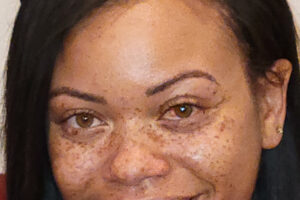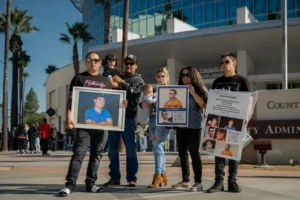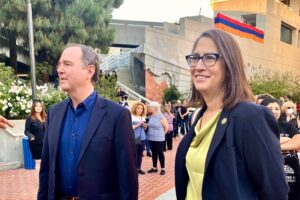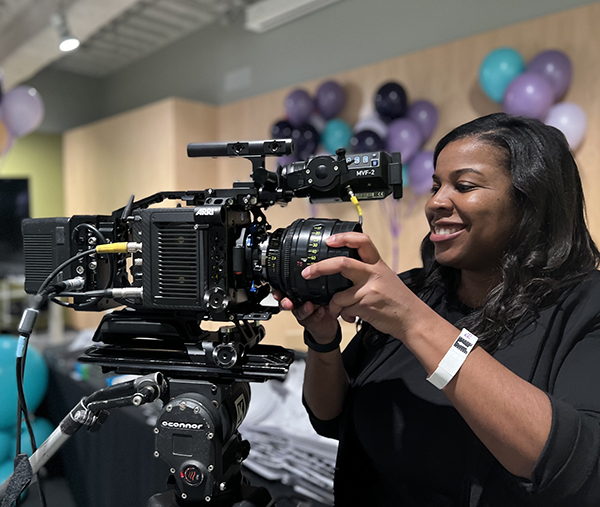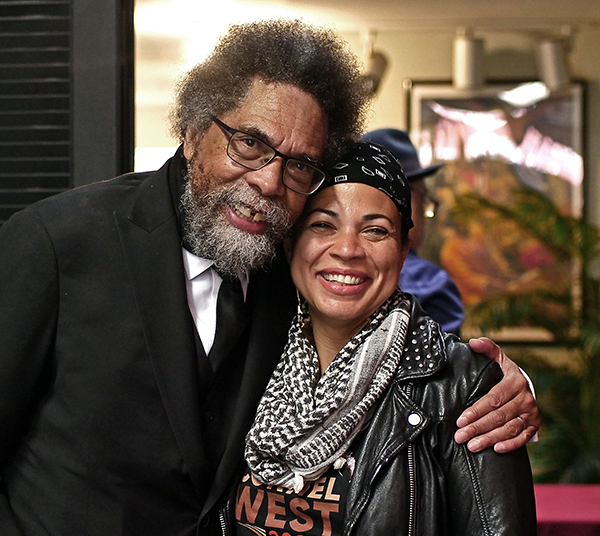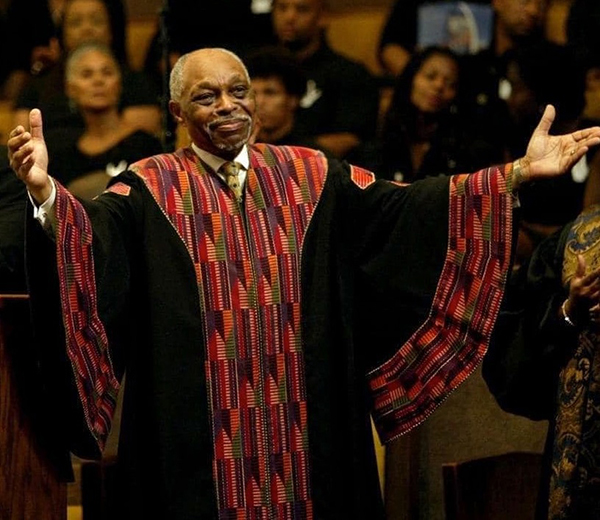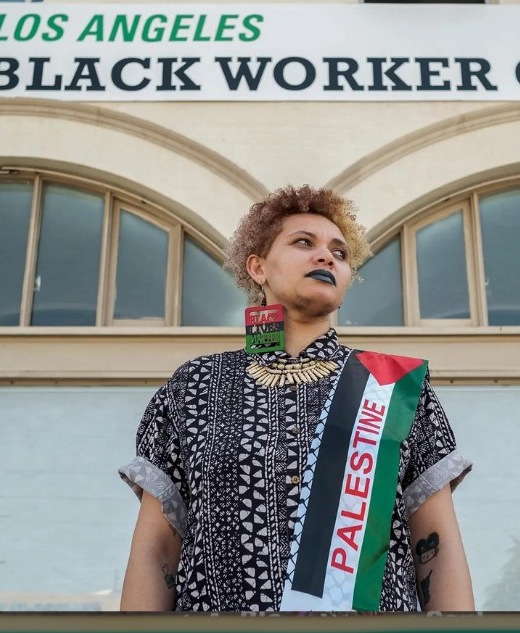By Shirley Hawkins
Contributing Writer
LOS ANGELES — Cracking open the glass ceiling so that young Black women can pursue careers in the film industry has always been the mission of Jayda Imanlihen, founder and executive director of the Black Girl Film School.
“At Black Girl Film School, which is nonprofit, we believe that storytelling is a powerful tool for personal growth and social change,” said Imanlihen, director of multimedia design and production at USC.
Imanlihen was working at George Washington University in Washington, D. C. when she noticed that there was a lack of Black girls entering into the pipeline to learn about film and film production.
“I noticed that there was a lack of Black women in film school as well,” she said, adding that during her days in college there was only one Black female professor who taught filmmaking.
“I asked my colleagues if they had ever learned film or cinema from a Black woman professor or any woman of color and to my surprise, their overwhelming response was “No!”
To close the gap, Imanlihen designed an online curriculum to serve as an onramp for girls 13 to 17 years old to be introduced to filmmaking and the professional pathways that exist behind the camera.
“I had resources for 10 girls and I had over 60 sign up” said Imanlihen, who founded the online school in 2016 and said that the girls find her organization through an online newsletter as well as through Instagram, Facebook and LinkedIn.
“We accept applications from top seventh and eighth grade females of color who are passionate about learning filmmaking and working in the industry after college,” she said.
The organization is also dedicated to empowering and educating Black girls and women behind the camera using science, technology, engineering, arts and math.
“Our mission is to provide access, resources and mentorship to aspiring filmmakers and storytellers who often face systemic barriers to entry and success in the film industry,” Imanlihen said. “I also want to increase the number of Black female department heads by designing inclusive learning experiences for minority girls to learn filmmaking.”
Imalihen, who has produced two films that have been shown at the Sundance Film Festival, said that she was a film fan from the time she was a little girl.
“I think what draws me to filmmaking is that film transports you to a different place and time and affects how you feel,” she said.
Asked who has been her inspiration in her film career, she said “I really like the work of director Kasi Lemons and her work on the Whitney Houston biopic, which I thought was outstanding.
“For sheer career and longevity, I love Debbie Allen. Not only is she a superb performer who was a dance pioneer, but she has carved out an amazing career for herself in feature films and television.
“My third inspiration is filmmaker and producer Shonda Rhimes, who produced the series ‘Queen Charlotte’ that is currently playing on Netflix. Rhimes always pushes toward the future and humanizes Black characters.”
The online school recently partnered with Maverick Entertainment to focus on supporting Black storytelling and attracting more girls to the filmmaking industry.
Maverick will support the school’s course offerings with a year-long partnership providing industry experts for an “Ask the Expert” series, a back-to-school scholarship award and a short film contest where students can win a monetary award and prize package and pitch their short film scripts to Maverick’s executive team.
And Imanlihen and BGFS have inspired many of her students, as well.
“To me, BGFS stands as an organization — or rather, a community — where I can experiment and express myself through my own creative outlet,” said high school student Chloe Nadal. “It allows me to learn new skills while cultivating and building up others. The fact that BGFS, Black and female-led, is able to provide a safe space where students are able to receive, give constructive feedback, and celebrate one another’s Black girlhood shows the unapologetic and hospitable environment that BGFS provides.
“After taking my first course, I was able to divulge in my interests further with my ambassadorship; even going so far as to begin filming my own [short] film with my first professional camera (in which Black Girl Film School also issued),” Nadal added. “They prepare various students, many of which have graduated high school by the time they finish a course and have already transitioned to college, for the film industry and encourage them to make content that invokes their truest selves. And that speaks volumes to their dedication.”
Uche Okeke added: “Black Girl Film School helped me re-discover my love for storytelling.
“Through their self-paced, interactive online courses, I was able to network and learn with like-minded Black women, all while being immersed in the different facets of storytelling behind the camera,” Okeke added. “My career in the industry was jump started because of BGFS and I’m grateful to be under the mentorship of Jayda and the entire BGFS team as I continue to progress in my career.
Tirzah Sheppard said she would be forever grateful to Imanlihen and Black Girl Film School “for creating such an impactful and important space for us in an industry and world that shuns us like no other.”
“BGFS has allowed me opportunities to work on major commercials both domestically and abroad and put me in spaces where people that look like me are rarely offered a seat at the table,” she added.
Imanlihen said her advice to young women seeking careers in the film industry would be, “Don’t quit your film dream. There’s a path for you behind the camera.”
Shirley Hawkins is a freelance reporter for Wave Newspapers. She can be reached at metropressnews@gmail.com.


